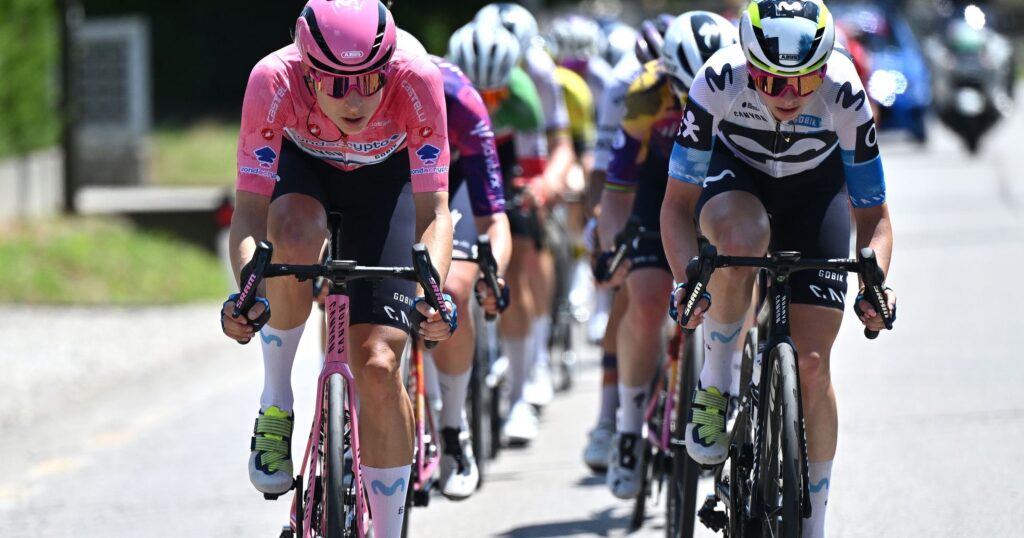Liane Lippert achieved a remarkable victory in Stage 6, showcasing her sprinting prowess and securing a win for her team while her compatriot, Marlen Reusser, maintained the prestigious maglia rosa, a symbol of the overall leader in the Giro d’Italia. Reusser carried a comfortable 16-second lead into what is often dubbed the Queen Stage, a pivotal moment in the race, taking place on the following Saturday. However, it would be naive to assume that the day was entirely flawless; the celebrated outcomes were shadowed by some unforeseen complications for the Movistar team.
The excitement of victory can often be accompanied by moments of tension, and Reusser experienced just that when her team’s communication device malfunctioned during the race. Reflecting on this experience, she shared, “We won the stage and we are in pink, so I think nothing could have gone better.” Yet, there was an edge of anxiety when her radio cut out halfway through the competition. Without the usual updates regarding race dynamics, she found herself somewhat isolated, despite leading. “I knew Liane was ahead but not by how much, so it’s so cool that she won,” she continued, conveying her genuine happiness for her teammate’s success.
As the race unfolded, tensions mounted due to the tactical maneuvers of competitors like Elisa Longo Borghini, who is recognized as a formidable General Classification (GC) rival. Reusser acknowledged this, citing Longo Borghini’s attempt at a strategic attack during the steepest sections of the course. “I knew she had to try it there, it was the steepest bit and it suits her, so I was ready to counter it,” Reusser articulated, illustrating her race mentality. This showcases the fierce yet respectful competition between elite cyclists, each striving to best the other while acknowledging their strengths.
The excitement was palpable not only for Reusser but also for Lippert, who celebrated her second consecutive win in Stage 6 of the Giro d’Italia. “I’m super happy. I had a super good day today and the team was on fire,” Lippert exclaimed gleefully. The synergy and unwavering support from her team played a crucial role in her success. Furthermore, she expressed appreciation for the gradual improvement in her form over the course of the race, noting, “I came to this Giro not feeling super good, but I felt better day by day.”
Elucidating on her emotional journey leading to this victory, Lippert remarked on last year’s success as she found a sense of familiarity with Stage 6. “Six is my lucky number in the Giro, as I won Stage 6 last year as well,” she reminisced, suggesting a symbolic connection between the two events. Her narrative resonates with the challenges athletes face, especially when starting a competition under less-than-ideal conditions, echoing the paramount role of mental support from teammates in achieving personal bests.
While the day ended on a high note for Movistar, it was not without its controversies. In the lead-up to Stage 6, Reusser had encountered disciplinary issues, having received a yellow card during Stage 5 due to unsportsmanlike conduct. The incident involved an altercation with Katia Ragusa from Human Powered Health, leading to a fine and a deduction of 30 UCI points for actions deemed to “endanger others.” This event underscores the challenging nature of maintaining composure and sportsmanship in high-pressure environments.
In summary, the outcomes of Stage 6 demonstrate not only the capabilities of Liane Lippert and Marlen Reusser but also the underlying challenges faced by professional cyclists. From technical difficulties to race-day tensions, each element contributes to the narrative of competition, resilience, and triumph within the dynamic world of cycling. As the Giro d’Italia progresses, fans eagerly anticipate the unfolding storylines, especially with the critical Queen Stage on the horizon.












